News
Plastic alternatives: The future of food packaging?
16 Apr 2024With the retailers Carrefour and U-Group in Belgium, France, and Luxembourg set to package some private label yoghurt, juice and cheese products in cellulose-based packaging, Ingredients Network looks at the most promising food-grade alternatives to plastic.
The €1.2 million EU project R3PACK (Reduce, Reuse, Rethink PACKaging) is one of the initiatives set up in the region to stimulate the development and uptake of novel fibre-based packaging solutions. The project has already triggered some tangible successes. By May 2025, customers of retailers Carrefour and U-Group in Belgium, France, and Luxembourg will be able to buy yoghurt, juice, biscuits, cheese, and other grocery products packaged entirely in plant-based material in thousands of stores. The retailers are set to launch a limited trial in 30-60 stores by the end of 2024, rolling out cellulose fibre packaging as an alternative to plastic packaging.
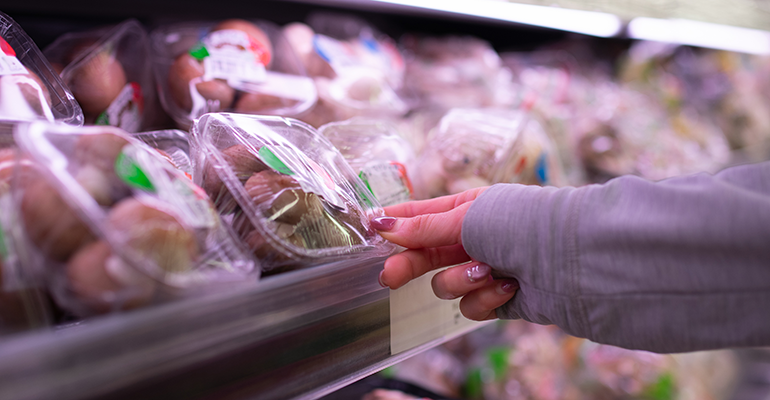
Combatting plastic waste
Run by (RE)SET, a Paris-based environmental consultancy, R3PACK is a three-year programme driven by the EU’s target of reducing plastic waste and promoting a circular economy. Plastic packaging waste remains a growing problem in the EU. The average European citizen generated 190 kg of packaging waste in 2021, amounting to a total of 84 million tonnes – up 24% in 10 years, according to Eurostat, the statistical office of the EU. Plastic material accounted for 19% of this waste by weight. While wood and paper packaging have driven much of the growth in packaging waste in recent years, the amount of plastic packaging waste increased by nearly 30% between 2010 and 2021.
And although recycling rates for plastic packaging have steadily improved to the point where all EU member states have met the 55% target, recovery rates for plastic lag those of other waste materials. The high costs of plastic waste to the environment in the form of water and air pollution, marine litter, resource depletion, and climate change therefore remain a rising concern.
Promising novel packaging options
The cellulose packaging trialled by R3PACK is among the more established and commercially viable recent alternatives to plastic packaging. It is not only durable and safe, but also relatively cost-effective. According to Wageningen University & Research, one of the key advantages of cellulose is its abundance within “side streams and residual flows of the agrifood industry” in the form of leaves and stems – but the raw material can also be collected from organic and textile consumer waste.
Mycelium-based packaging, grown from fungus on a substrate like wheat or sawdust, is another promising sustainable alternative. Grown in two to four weeks, this material is fully biodegradable, water resistant, fireproof, and much less carbon-intensive than plastics.
In recent years, several startups have demonstrated the possibility of commercialisation, such as the New York-based company Evocative, which launched ‘Myco-bond’ as a Styrofoam alternative. According to a 2018 article in Materials Today, obstacles to scaling up mycelium packaging production include the challenge of consistent density, logistical hurdles, and consumer perceptions.
Edible packaging on the rise
Mycelium and cellulose have both attracted a lot of attention and funding due to the versatility of the material, but there are also many other packaging options within the food and beverage space that are gaining momentum. Seaweed polysaccharides are biodegradable and non-toxic, but also have the additional benefit of their antioxidant property, allowing for edible and durable packaging. The startup NOTPLA has developed ‘edible blobs’ from seaweed containing substances like condiments and sports drinks. However, like many other ‘food contact materials’ packaging solutions, seaweed has some major drawbacks.
A 2021 review of seaweed polysaccharide as a packaging, film, and coating material in the journal foods noted that seaweed has significantly higher production costs, much more regulatory uncertainty, and the additional challenge of the potential for accumulation of toxic metals and hazardous compounds.
High production costs, regulatory uncertainty, and consumer hesitancy are also primary barriers that other innovative packing solutions in the food and beverage space have to overcome in order to scale up. Nonetheless, more and more innovative products like the dissolvable edible films produced from natural silk by ‘anti-waste company’ mori and plant-based produce ‘peel’ packaging from agri-tech startup Apeel are entering the packaging space, attracting funding and attention from retail partners. These packaging innovations indicate that no single alternative might emerge as the new plastic, with different sustainable options offering a good fit depending on the product, consumer preferences, and local supply chains.
Related news
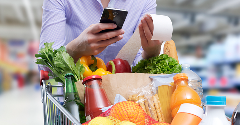
Retailers must do more to promote healthy eating
12 Apr 2024
UK retailers could play an even bigger role in helping consumers to make healthier food choices, according to Nesta, an innovation agency targeting social good.
Read more
R3PACK Consortium backs BPA ban
9 Apr 2024
The EU-funded research project, R3PACK, urges a ban on Bisphenol A (BPA) and calls for rigorous rules, promoting transparency and prioritising health and the environment.
Read more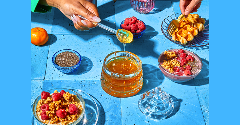
MeliBio’s ‘bee-free’ honey to hit the European market
8 Apr 2024
MeliBio, a startup developing honey without bees, rolls out its first plant-based sweetener products to the European market in partnership with Slovenian food maker Narayan.
Read more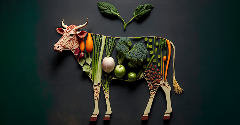
Beyond Burger’s clean-label recipe revamp
2 Apr 2024
Following annual revenue and profit losses, plant-based leader Beyond Burger has updated its ingredient list, adding avocado oil for a healthier fat profile and removing “unnecessary” ingredients.
Read more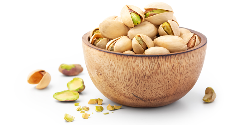
KoRo’s limited edition pistachio-packed waffle delivers balanced indulgence
26 Mar 2024
Natural food brand KoRo’s special edition vegan waffle crafted with 45% pistachios, stands as a healthy yet indulgent snack, embracing the nutritious appeal of nuts.
Read more
Exploring the future of health and wellness retail at Vitafoods Europe
14 Mar 2024
With retail-focussed content sessions, buyer networking, and finished product tasting sessions, this year’s Vitafoods Europe offers a not-to-be-missed opportunity for retailers to up their health and wellness game.
Read more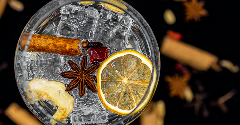
As Gen Z shies away from alcoholic drinks exotic flavours are the big draw
11 Mar 2024
With Gen Z drinkers proving to be the driving force behind the sober curious movement, we spoke to Bax Botanics, an artisanal distiller of zero-alcohol botanical beverages, to find out what appeals to its younger drinkers.
Read more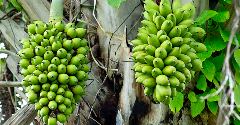
Macauba oil emerges as potential rainforest-friendly palm oil alternative
1 Mar 2024
Producers and researchers consider the rainforest-friendly credentials of Macauba palm oil and whether its sustainability credentials offer an opportunity to replace palm oil.
Read more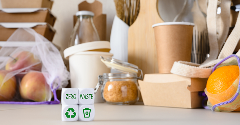
SEE launches first biobased compostable protein trays
23 Feb 2024
Sustainable packaging solutions for perishable food products have proved to be a big challenge for food manufacturers, but US packaging provider SEE (formerly Sealed Air) has launched a composable protein packaging tray.
Read more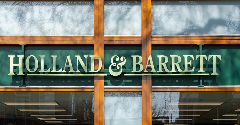
How Holland & Barrett has responded to the evolving retail landscape
21 Feb 2024
Putting consumers first and anticipating changes to the retail landscape are critical factors in the success of Europe’s leading health and wellness retailer Holland & Barrett, says Alex Glover, nutrition development lead for R&D at Holland & Barrett.
Read more